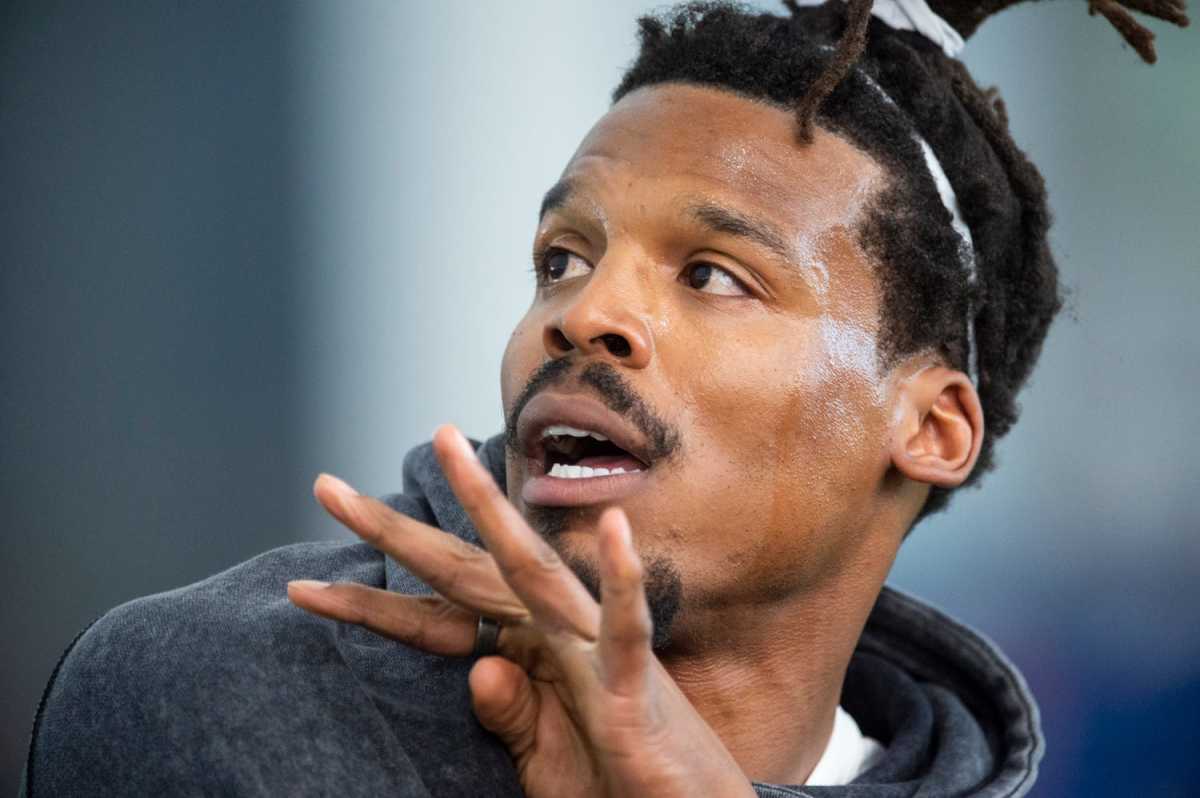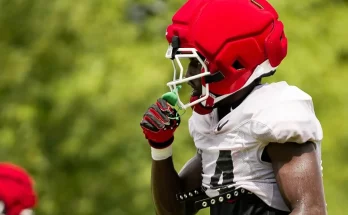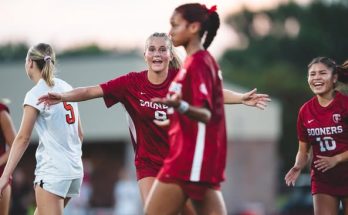The world of youth football, often known for intense competition and high stakes, took an unexpected turn when a 7-on-7 team went viral for a dramatic and highly publicized confrontation with former NFL MVP and Heisman Trophy winner Cam Newton. What was meant to be a developmental event for young athletes turned into a media firestorm after a group of teenagers confronted and verbally disrespected Newton, one of the most recognizable figures in football. The incident, captured on video and widely shared across social media platforms, ignited national debate around respect, mentorship, and the state of youth sports culture.
The scene unfolded at a well-known 7-on-7 tournament, where Newton’s presence wasn’t just symbolic—he was there to coach and mentor young athletes as part of his commitment to give back to the football community. Newton, who has invested considerable time and resources into youth development through his “C1N” foundation and team, was approached by a group of players from an opposing squad during the event. The exchange quickly escalated when members of the team began taunting Newton, questioning his current status in the league and mocking his achievements in an aggressive and disrespectful tone.
What followed was a mix of confusion, disbelief, and eventually, outrage. One of the players can be heard saying, “You’re a free agent, you’re washed!” to Newton’s face. Newton, clearly taken aback, responded with a degree of patience that surprised many viewers. “I’m rich,” he replied, calmly, trying to defuse the moment without escalating the tension. He continued to address the players with composure, asking to speak with their coach and emphasizing the importance of respect and accountability.
The video sparked immediate reactions across social media. Some users criticized the young athletes for what they saw as a lack of discipline and respect for those who paved the way. Others pointed fingers at coaches and parents for failing to instill proper values in their athletes. Still, there was a faction who saw the interaction as a generational clash—young athletes testing boundaries, emboldened by a digital culture that often rewards controversy and virality over humility.
Cam Newton, who has always been a lightning rod for media attention due to his flamboyant personality and unapologetic confidence, has faced criticism throughout his career. From his unique fashion sense to his postgame interviews, he’s often been unfairly judged under a harsher spotlight than many of his peers. Yet, his accomplishments are undeniable. As a former NFL MVP, Super Bowl participant, and one of the most dynamic quarterbacks in the league’s recent history, Newton has not only impacted the sport but also served as a role model for countless young players—particularly Black quarterbacks who’ve looked to him as a pioneer.
This incident, however, shifts the conversation to how younger generations view legacy, authority, and mentorship. The disrespect shown toward Newton reveals a cultural moment in youth sports where ego and attention often overshadow growth and humility. The pressure to go viral, to trend, to be noticed—even for the wrong reasons—can sometimes outweigh the core values of sportsmanship and learning from those who have succeeded.
In the aftermath of the event, Newton addressed the situation publicly. In a video response and follow-up comments, he expressed concern for the mindset of today’s youth. “This is bigger than football,” he said. “We have to do a better job reaching these kids and helping them understand the importance of respect, learning, and growth.” He stopped short of harshly criticizing the players, choosing instead to highlight the opportunity for dialogue and change.
Former and current NFL players quickly came to Newton’s defense. Hall of Famers, analysts, and athletes like Dez Bryant, Marcus Spears, and even Tom Brady shared their thoughts online, echoing the sentiment that Newton deserved better and that the moment should serve as a wake-up call for youth coaches, parents, and the football community at large. “You don’t have to like Cam Newton,” said one former player on ESPN, “but you damn sure better respect what he’s done for the game. These kids need to understand that.”
Interestingly, the team at the center of the controversy issued a statement days later. The head coach expressed regret over the actions of his players, promising to use the incident as a teachable moment. “We failed in that moment,” he said. “That’s not who we are or who we want to be. We’ll be addressing this internally and making sure our young men learn from it.” One of the players involved also apologized directly, admitting that his emotions got the best of him and that he let the moment overshadow what should have been a positive experience.
The broader implications of the moment go beyond Newton and the players involved. It raises critical questions about how athletes are raised and educated in the social media era. With platforms like TikTok, Instagram, and YouTube dominating youth attention, the line between real achievement and fleeting attention has blurred. The need to perform for the camera sometimes replaces the desire to perform on the field. Coaches and mentors now find themselves not just teaching technique and play-calling, but also navigating the cultural pressures these young athletes face.
For Newton, this moment may become yet another chapter in a career filled with both triumph and controversy—but it also solidifies his role as a mentor, leader, and teacher. His restraint in the face of blatant disrespect was praised widely and served as an example of maturity in a world where snapping back has become the norm.
In the end, the video may fade from trending lists, but the lesson remains. Football—at its best—is about more than just touchdowns and trophies. It’s about character, resilience, and legacy. Newton, for all his flash and bravado, has always embodied a deeper mission: to uplift the next generation. If the moment of disrespect helps shine a light on the gaps in youth mentorship and respect, then perhaps some good can come from it.
But the story also serves as a cautionary tale. For every young athlete dreaming of the NFL, fame, or even just a college scholarship, there’s a responsibility that comes with wearing the jersey. Representing a team means something. So does how you carry yourself when eyes are on you. Newton understood that when he was 16. Maybe now, these kids will too.
And perhaps the final word belongs to Cam Newton himself, who said in a follow-up interview: “I’m not mad. I just want them to be better. That’s what this whole thing is about—being better.”



